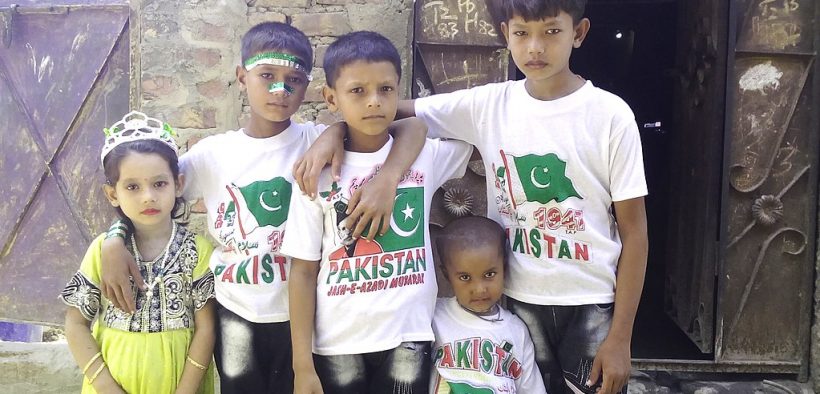HIV Outbreak Strikes Pakistani Children, Used Syringes Likely Culprit

“By 24 April, 15 children had tested positive, though none of their parents were found to be carrying the virus,” one hospital doctor told the BBC.
An alarming HIV outbreak that has affected mostly kids in Pakistan forced the Pakistani government to appeal to the United Nations World Health Organization (WHO) for help. The WHO responded by deploying a rapid response team to Pakistan to help with the country’s largest ever HIV infection outbreak. More than 700 adults and children have been diagnosed with HIV over the last month. While many local Pakistani regions continue to have limited HIV outbreaks, the country’s recent outbreak is unprecedented.
Word is spreading through the villages, and local citizens line up each day by the hundreds outside screening facilities. So far, authorities have tested over 20,000 people.
Sadly, the large majority (over 80%) of infected people are children under age 15. Half of those (about 40%) are under age 5. Authorities suspect the younger children likely contracted HIV through unclean syringes that are being packaged and resold in Pakistan.
Globally, approximately 36.9 million people are currently living with HIV, and most do not have access to prevention or treatment. Pakistan is one example — hospitals do not have sufficient infection prevention systems, and blood transfusions can be contaminated. The Pakistan Medical Association estimates that 600,000 unqualified doctors are practicing in Pakistan, with over 80,000 of them in the region of the outbreak. For example, paramedics pose as doctors and medical school graduates who have not been able to find work do as well.
Teams are working around the clock to determine the root cause, and to also ensure that the outbreak is contained and does not progress further. Over the last few decades, major global efforts have been mounted to address the HIV epidemic. While that presents major challenges worldwide, significant progress has been made. The U.S. government is the single largest donor to international HIV efforts in the world.
What is Causing the HIV Outbreak to Strike Kids?
According to a BBC report, the first sign came for parents in the small southern Pakistani town of Ratto Dero when their children had a fever that could not be remedied. Within weeks, more and more children showed symptoms of a similar illness. Physician Dr. Imran Aarbani was perplexed, so he took blood samples and sent them away for testing. The results came back, and Aarbani’s worst fears were confirmed. It was HIV.
Since none of the parents had HIV, doctors wondered about the cause of the outbreak. A similar 2016 outbreak in the same region confirmed that over 1,500 people were HIV positive. At that time, men were mainly infected, and the link was found to be local sex workers who had AIDS, despite Pakistan’s ban on prostitution.
“Initial official investigations conducted by our organization in collaboration with provincial and federal health departments point towards the reuse of infected syringes in the area and also unscreened blood transfusions. [Other reasons] could be poor infection prevention and unprotected sex,” said Pakistani National AIDS Control Programme manager Abdul Baseer Khan Achakzai to SciDev.Net.
Some health experts believe that the latest outbreak may also be indirectly tied to high-risk groups like sex workers. With so many under-qualified non-physicians practicing medicine in the region, lax practices have caused cross-contamination from infected people to other patients. Multiple use of single syringes is the prime suspect in the new outbreak’s voracity.
Local doctors say there are only three ways that young children can be affected: through an HIV-positive lactating mother, through blood transfusion, or through an infected syringe or another instrument. Since the large majority of the children’s mothers test negative for HIV, and since very few children undergo blood transfusions, the likely culprit is reuse of single-use syringes.
In response, the Pakistani government has closed over 500 provincial unregulated clinics. Parents are left with the devastating diagnosis and the high cost of seeking treatment in Karachi, the only place so far that has the pediatric medications for treatment. Regular families are spending thousands of rupees on each trip, and with most being rural workers, the majority of families will soon not be able to afford these treatments.









